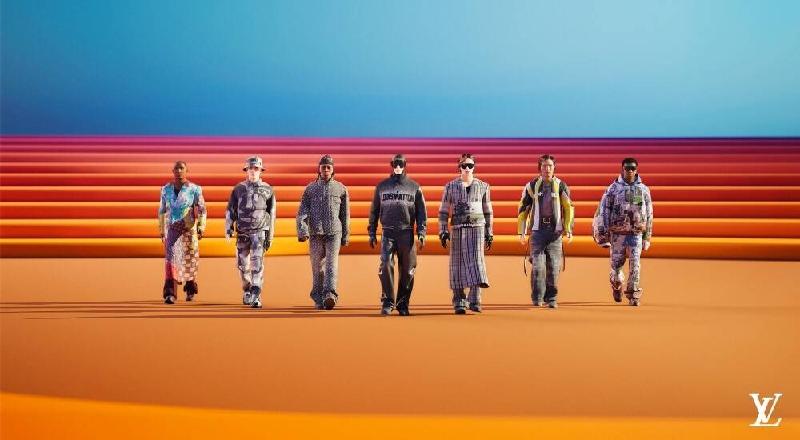At 2023 Viva Technology show, LVMH announced a partnership with Epic Games, creator of Fortnite and Unreal Engine, to transform the luxury Group’s creative pipeline and bring customers new types of immersive products discovery experiences. This strategic partnership will empower LVMH and its Maisons to further utilize Epic’s powerful 3D creation tools to offer experiences like virtual fitting rooms and fashions shows, 360 product carousels, augmented reality, creation of digital twins and more.

@LVMH luxury group and @Epic Games announce strategic partnership to transform Maisons’ creative pipeline and customer experiences; @Louis Vuitton
These tools, including Unreal Engine, Reality Capture, Twinmotion, and MetaHuman technology will help LVMH unlock significant growth opportunities.
The recent announcement of a strategic partnership between LVMH and Epic Games has sent waves through the luxury and gaming industries. This collaboration aims to transform LVMH’s creative pipeline and revolutionize customer experiences by integrating Epic’s powerful 3D creation tools into the world of luxury. While the partnership seems ambitious and forward-thinking, it raises questions about the impact on both industries and the success rate of similar collaborations.
LVMH, known for its prestigious fashion and luxury brands, has always strived to stay ahead of the curve and provide innovative experiences to its customers. By joining forces with Epic Games, the creator of the wildly popular Fortnite and Unreal Engine, LVMH hopes to tap into the immense potential of interactive gaming and virtual reality. The integration of tools like virtual fitting rooms, 360 product carousels, and augmented reality promises to enhance the way customers engage with luxury products.
However, the marriage of luxury and gaming is not without its challenges.
The luxury industry has long relied on exclusivity, craftsmanship, and tangible experiences to create value for its customers. The introduction of virtual worlds and digital experiences may dilute the allure of luxury brands, potentially diminishing the appeal of physical stores and the uniqueness of in-person interactions. While immersive technologies have their merits, it remains to be seen whether they can truly replicate the sensory and emotional aspects that are integral to luxury.
Moreover, the success rate of partnerships between luxury brands and gaming companies is a mixed bag. While collaborations can bring fresh perspectives and attract new audiences, they also run the risk of alienating traditional luxury consumers. Luxury brands must strike a delicate balance between embracing technological advancements and maintaining the core essence of their heritage and craftsmanship. Previous attempts at merging luxury and gaming have seen varying degrees of success, highlighting the need for careful navigation of this uncharted territory.
The partnership between LVMH and Epic Games presents an opportunity for both parties to leverage their respective expertise and resources. LVMH aims to capitalize on Epic’s advanced creator tools to transform the entire product creation process, from collections to ad campaigns. By adopting tools like Unreal Engine, Reality Capture, Twinmotion, and MetaHuman technology, LVMH hopes to engage with younger generations who are familiar with these digital realms.
Epic Games, on the other hand, benefits from collaborating with one of the most esteemed luxury conglomerates in the world. The partnership allows Epic to showcase the capabilities of their technologies in the context of luxury, providing a real-world application beyond the realm of gaming. This collaboration also reflects LVMH’s commitment to fostering digital acculturation within its teams, emphasizing the importance of staying abreast of the digital landscape.
While the solutions already deployed at LVMH Maisons, such as Bulgari’s metaverse experience and Louis Vuitton’s Digital Show Experience, have garnered attention, it is crucial to analyze their long-term impact. These immersive experiences undoubtedly generate initial excitement, but the question remains whether they can sustain customer interest and drive tangible business results. Luxury brands must carefully evaluate the return on investment in terms of customer engagement, brand perception, and ultimately, sales.
As LVMH and Epic Games move forward with their partnership, it will be interesting to witness the evolution of luxury in the digital realm. The success of this collaboration hinges on striking the right balance between technological innovation and preserving the core values that define the luxury industry. Only time will tell whether this ambitious union will lead to a seamless integration of luxury and gaming or reveal the inherent challenges in bridging these two seemingly disparate worlds.

